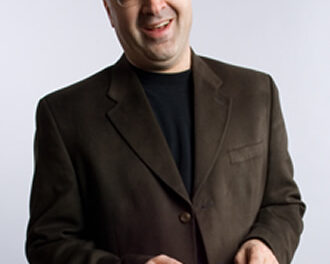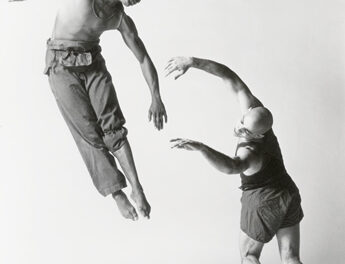The Asheville Symphony Orchestra ended the 2005/06 season with a substantial program, a new sound, new numbers in the front office, and bright hopes for the future. New boss Daniel Meyer, Music Director and Conductor, has put his stamp on nearly every aspect of this organization, and you can feel the excitement and anticipation from the staff, through the musicians, and directly to audience members. It’s one of those palpable deals, you know?
This program consisted of only two works, performed without intermission. First was the brief orchestral essay “Music Celestis,” by Aaron Jay Kernis; this led directly into Ein deutsches Requiem of Johannes Brahms, featuring soprano Alison Trainer, baritone Tim Mix, and the combined Asheville Symphony Chorus and Western Carolina University Chorus prepared by Dewitt Tipton. The pairing of these works has some logic, but in retrospect it suffered due to program balance. The Kernis piece is similar in character and mood to Samuel Barber’s famous Adagio, from the String Quartet No. 1, Op. 11, but it really isn’t long enough to serve as a memorable bookend for the multi-movement and weighty Requiem. It is, however, most effective as an opening work, to set the mood.
As the frustratingly brilliant orchestration skills of Brahms’ Requiem unfolded from the stage, Dewitt Tipton’s work came front and center. He is Director of the Asheville Symphony Chorus and for many years has directed a variety of choral activities in the Asheville region, in addition to gigs as a piano soloist and chamber music accompanist. The combined chorus, singing in German, displayed Tipton’s legendary penchant for detail and preparation and was joyously focused on Meyer’s in-the-moment conducting style. The orchestra’s solid sound and ensemble combined with the chorus to bring forward the substance and grandeur of this music and make wonderful theater, too. The professional voices of Trainer and Mix added luster, bringing a completely new image to the ASO organization…. That’s the story here.
Following Meyer’s debut at the season opening concert last September I wrote, “…Meyer… falls in the stylist mold, where the grand gestures, sweeping stick arcs, and occasional musical grimace are tools of the theater…, but there is not enough substance to the effort to result in something new. That said, there is nothing new about the sound of the orchestra at all. It continues as a band of individualists holding fast to personal habits either from stubborn intransigence, personal resistance, or outright lack of leadership. It is certainly not a poorly shaped amateur band, nor is it a homogenous and polished professional orchestra. It falls somewhere in the middle….” At the end of the season, we can now hear the fruit of Meyer’s efforts: there is a new homogeny of sound, mostly in the strings, born from efforts by all to create dynamic unity and consistent bow strokes. Melodic focus is clearly more prominent due to consistent coaching around the vocal metaphor, and the musicians are flexible enough and committed to improvement. Meyer has brought more vibrato to the phrase, and you can actually see this new sound in the musician’s body language. They are ready to play, and when playing, they are working with and following Meyer’s hand signals. The resulting image is that of a man working with a sound sculpture, centering the aural image in the moment, and holding and commanding the attention of all in the room.
Yeah, yeah, so what? Well, if you spend a few minutes chatting with ASO Executive Director Steve Hageman, you’ll learn that all the pencil neck geeks are celebrating, too. The corporate numbers, a bottom line for any activity in America, are changing in the correct direction. Season tickets sales are up, single ticket sales are up, audition applications have increased, the orchestra is performing additional dates, board members are inspired, the public is talking in positive tones, there are additional dates for next season, additional pressure is now being brought upon the city government to replace already-aged-and-done Thomas Wolfe Auditorium – and in the end, we may stumble upon a cure for ignorance. Who knows?
All this is to say that Daniel Meyer’s first season with the Asheville Symphony has been a huge success right down to the toenails. A common refocusing agent in American corporate strategy is to change leadership. Here, the technique has worked in textbook manner. By improving the orchestra’s sound, bounding about the office with enthusiasm, educating both the musicians and the public, and by simply existing as a “verb,” Meyer has channeled a new sound, a sense of hope and prosperity, and renewed respect for the organization that is echoing throughout the region. Well done!












